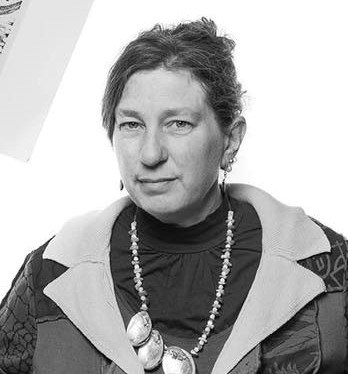ATHABASCA – Identifying and combating racism is as old as time; since people adopted a nomadic lifestyle and began encountering and conquering other cultures, racism has been built into the fabric of history.
That built-in racism is defined as institutional racism, a term coined in 1967 by Stokely Carmichael and Charles Hamilton in Black Power: The Politics of Liberation. Another commonly used term is systemic racism.
Dr. Leigh Brownhill, who tutors in the Faculty of Humanities and Social Sciences at Athabasca University, recently published a four-part op-ed called, Anti-racist activism in the COVID-19 era, in which she identifies systemic racism and ways we can all combat it.
“There's no more signs on the wall that say ‘Whites Only.’ That doesn't mean though, that the deep culture isn't exclusionary,” Brownhill said in an interview June 24, a month after the murder of George Floyd by a Minneapolis police officer was caught on camera.
Brownhill explained that businesses, schools, and even hospitals can have deep roots that have set up barriers and forms of discrimination which become part of the very fabric and culture and people who are not suffering from discrimination do not even notice it happening.
“It was a Canadian city where emergency room staff were taking bets on the blood alcohol level of Indigenous people who ended up in emergency. So obviously, that's not a policy,” she said.
Understanding systemic racism is tied to understanding white privilege. White privilege is not based on how hard you work or your bank account, it is that the colour of your skin gives you a pass that people of other skin colours are not granted. It is when a white man who killed multiple people in a movie theatre can be taken into custody peacefully, but a black man suspected of passing a counterfeit $20 dies with a knee on his neck, she said.
“The police aren’t meant to be judge, jury and executioner because of a petty crime. Yeah, just because he's suspected of this is why we have a division and which is why we have courts and judges,” said Brownhill.
Racism is an unarmed Trayvon Martin, who was murdered in 2012 while walking to his father’s home in a gated community. Martin’s murder and the subsequent acquittal of armed George Zimmerman, who claimed self-defense, led to the formation of Black Lives Matter.
‘Matter’ is a key word comedian Michael Che said in a 2016 Netflix special, “As a country we just can’t agree; we just fight about everything. We can’t even agree on Black Lives Matter. That’s a controversial statement – Black Lives Matter. Not matters more than you, just matters. Matters. Just matters. That’s where we’re starting the negotiations; matters. What is less than matters? Black lives exist? Can we say that? Is that less controversial?”
And four years later, and eight years after Martin's murder, Black Lives Matter is still controversial.
Brownhill explained that to root out systemic racism people need to work together and be willing to critique longstanding institutional and organizational cultures that can seem too big to change.
"We have to be willing to stand back and criticize everything. What that immediately does is it takes pressure off the act of the individual. The entire system needs to be criticized and critiqued and understood in these terms,” Brownhill said.
Part of that system of oppression applies to white people too, in the form of poverty. Brownhill said as long as people of all races are kept poor, the rich can continue to use racism to keep people from demanding a redistribution of wealth.
“Let's face it, there's a there's a huge problem of poverty in the world that affects white people too. And it in actual fact, stems from the same exact sources. I think there are some guys up there who are laughing all the way to the bank, while the people down here are fighting with each other,” she said.
In order to stamp out systemic racism though, we need to admit what our ancestors did, Brownhill explained. People will say they are not slave owners, that is in the past. That they are not racist even as they claim statues of known slave owners should not be torn down, or that Colin Kaepernick should not take a knee in peaceful protest.
Refusing to accept Kaepernick’s actions as peaceful and working to understand why he was kneeling is part of what led to the massive world-wide protests since Floyd’s murder. Refusing to understand why Wet’suwet’en were blocking infrastructure in Canada does nothing to stamp out racism.
“(We need to) take the step of saying there's a grossly unequal system going on here. And it's very much obviously impacts on equity impacting black and Indigenous people,” Brownhill said.
In Part 2 Dr. Brownhill discusses how to work on ending racism.
Heather Stocking, TownandCountryToday.com
Follow me on Twitter @HLSox



